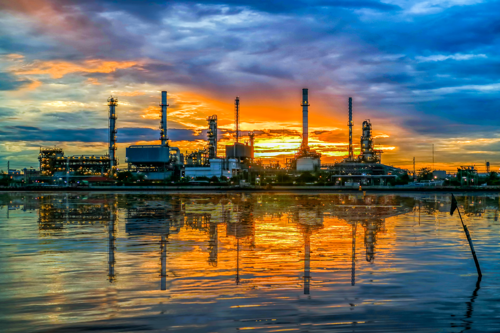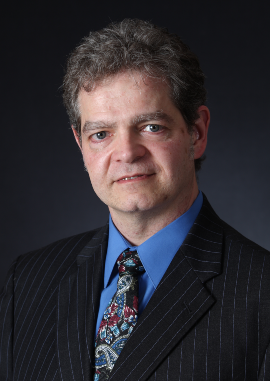2021 AFPM Annual Meeting Virtual Edition: Sustainability without sacrifice
JEFFREY A. ZURLO, SUEZ – Water Technologies & Solutions
In a recent interview, actor Robert Downey Jr. remarked that, “You shouldn't have to sacrifice quality for sustainability.” While he was not speaking about the oil and gas industry, his statement echoed what has been a core value of the downstream refining industry since shortly after its inception—and this value has never been more relevant. Plants today are safer and have a lower environmental impact than in the past, while simultaneously the quality of the refined product they produce has improved to meet more stringent quality and environmental specifications (FIG. 1).
The trend of traditional oil companies expanding into renewable fuels production is a recent example of the industry flexing to meet market demands for more sustainable products to remain a key producer of energy for the future. As an example, several companies have announced plans to convert marginal fossil fuel assets or build new units to produce transportation fuels from alternative, renewable feedstocks. While these units use some of the same renewable sources as the biofuel blend components added to fungible fuels to reduce carbon intensity, the end products from the renewables process attain a higher quality, meeting the same exacting standards that would allow them to be a drop-in replacement for fossil fuel products.

FIG. 1. Plants today are safer and have a lower environmental impact than in the past, while simultaneously the quality of the refined product they produce has improved to meet more stringent quality and environmental specifications.
As one of the major industry solutions providers, our part is to help oil, gas and renewables companies run more efficiently, reducing water, waste, energy and maintenance requirements that ultimately help refiners be more profitable and more sustainable. This commitment aligns with our Shaping SUEZ 2030 initiative to drive greater environmental sustainability for both our own operations and those of our clients. A few examples of our changes to improve sustainability are highlighted here.
A commitment to sustainability. As part of an ongoing commitment for continuous improvement with a long-term refining customer, the crude unit desalter treatment program was upgraded to improve dehydration. One benefit is reduced fuel gas requirements in the crude unit furnace, as drier crude requires less energy to raise the distillation temperature. After making the program change and optimizing the system, water content in the desalter crude oil was reduced by 28% on average over the last two years. Lower furnace fuel and desalter demulsifier demands reduced annual costs at the crude unit by more than $300,000 and removed 240 tons of Scope 1 CO2 emissions from reduced fuel gas usage.
At another refinery, more than 700 reverse osmosis (RO) membranes per year were being removed from the plant and shipped offsite for cleaning before being returned to the refinery. The RO systems are used to improve water quality in preparation for use in steam generation and process contact water throughout the refinery, and cleaning to restore performance is a normal part of the operation. Membrane removal, packaging and shipping is a labor-intensive process that requires lifting and managing heavy loads, then shipping the membranes long distances via truck to the cleaning facility. To improve operating efficiency and safety, a clean-in-place system was developed to allow membranes to be cleaned without being removed. An average of eight in-situ cleanings per year are conducted at this site, reducing cleaning costs by nearly $100,000 and avoiding more than 18,000 shipping miles, reducing the site’s Scope 3 CO2 footprint.
Returning to the renewable fuel production topic, some of the feeds used in this process require a “pretreatment” step to remove contaminants harmful to the rest of the process. This step results in a wastewater stream that has markedly different treatment requirements than the typical refinery wastewater streams. In addition to treatments to help the renewable process operate and ensure finished product quality, SUEZ can design or retrofit the waste treatment units to handle the changing wastewater streams when adding renewable fuel operations.
SUEZ is actively participating in the 2021 AFPM Annual Meeting, so please contact us at the conference to learn more about our sustainable solutions. You can find us anytime at www.suezwatertechnologies.com.
Acknowledgement: The author would like to thank Kevin Cristofanelli, Joe Hackle, Rebekah Obenauer, Phil Millard and Mark Knight for providing data and example context.
About the author:
JEFFREY A. ZURLO is the Strategic Marketing and Commercialization Lead at SUEZ – Water Technologies & Solutions. He has more than 30 years of industry experience across several hydrocarbon processing technologies at both facility and corporate level positions in process engineering, technical sales and services, subject matter expertise and strategic marketing. Prior to joining SUEZ – Water Technologies & Solutions in 1997, Zurlo held process engineering positions at Sunoco Inc., Koch Refining and Hercules Inc. He holds a BE (ChE) degree from Stevens Institute of Technology.







Comments